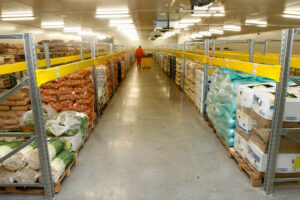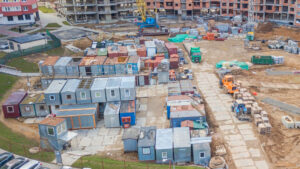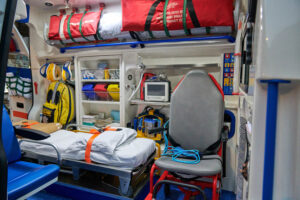
Choosing the Right Oil and Gas Facility Maintenance Partner
Selecting the right oil and gas facility maintenance provider is a pivotal decision for companies operating in Canada’s remote regions—from

The importance of sustainable food practices in remote camp operations highlights both innovative strategies to minimize waste as well as elevating the dining experience to maximize taste. It focuses on responsible food management as a vital component of business operations, impacting not only the environment but also the well-being of the camp community.
Sustainable food practices are at the heart of the culinary philosophy of every remote food service provider. Every meal can be an opportunity to make a positive impact on the environment. By sourcing locally and seasonally, reducing food waste, and adopting eco-friendly preparation methods, remote catering services can create a recipe for sustainability that nourishes both body and planet.
In remote locations, the bounty of local produce is a resource to be celebrated. Remote chefs and their culinary teams take pride in sourcing ingredients from nearby communities, reducing the carbon footprint associated with transportation while supporting local economies. This commitment to local sourcing not only enhances the freshness of ingredients but also fosters a sense of connection to the region’s natural and cultural heritage.
Minimizing food waste is a core principle of sustainable food practices. Remote culinary experts are adept at using every part of an ingredient, from root to stem, to create delectable dishes. By embracing nose-to-tail and root-to-tip cooking, remote food services are able to maximize taste and nutrition while minimizing waste, contributing to a more sustainable food system.
Strategic portioning and meal planning are essential components of waste reduction. Remote food providers carefully estimate the quantities needed for each meal, ensuring that excess is minimized without compromising customer satisfaction. This thoughtful approach not only reduces food waste but also contributes to cost-effectiveness.

Sustainable food practices extend beyond the kitchen. Experienced food service providers implement composting and recycling initiatives in remote camps, diverting food waste from landfills and promoting the circularity of resources. By transforming food scraps into nutrient-rich compost, we complete the cycle of sustainability and contribute to the health of the local ecosystem.
In remote operations, resource conservation is paramount. Culinary teams employ innovative cooking techniques that maximize flavor while minimizing energy consumption. Slow cooking, batch cooking, and utilizing energy-efficient appliances are just a few examples of how to balance culinary creativity with responsible resource management.
Sustainability and taste need not be mutually exclusive. A commitment to sustainable food practices enhances the dining experience, infusing each meal with the goodness of fresh, locally sourced ingredients. By prioritizing quality, creativity, and environmental responsibility, the culinary journey is elevated for camp residents.
Sustainable food practices are more than a trend; they are a responsibility that every food service provider should embrace with dedication. In remote work landscapes, minimizing waste and maximizing taste go hand in hand. By sourcing locally, reducing waste, and adopting eco-friendly techniques, remote food services are able to nourish both appetites and the planet we live in.
Domco Group of Canada Limited is one of the most trusted and well respected remote sites service providers in Canada. Fully Canadian and independently owned, Domco has been in operation since 1945. We offer integrated remote site solutions, including a nutritious and well planned menu cycle, long-term relationship building, and deep Canadian roots in remote locations with Aboriginal communities.
Let us take you through some key advantages that set us apart.

Selecting the right oil and gas facility maintenance provider is a pivotal decision for companies operating in Canada’s remote regions—from

In Canada, mine camp management plays a key role in supporting workers at remote mining sites. These sites provide housing,

Remote food catering plays an important role in supporting workers across Canada’s most isolated job sites. Whether in the far

Remote camp maintenance jobs in Canada support the full lifecycle of temporary worksites—from setup (mobilization) to daily operations (maintenance) and

Remote catering companies play a vital role in supporting Canada’s vast and varied industries, especially those operating in isolated or

Oil and gas facilities management is a complex and critical discipline that ensures energy operations in Canada’s most remote locations

In the rugged, often isolated world of remote construction camps, construction facility management is the invisible force that sustains daily

Remote maintenance is the backbone of operational continuity in Canadian work camps, especially those located in isolated regions supporting industries

Remote camp health and safety is a vital concern in the management of Canadian remote workforce camps, especially in resource-driven

Keeping crews energized and satisfied starts with smart camp food menu ideas—especially in remote environments where morale and nutrition go

Gas remote camp mobilization is a critical operational phase in Canada’s oil and gas industry, particularly in remote and northern

When it comes to remote site security in Canadian work camps, ensuring safety and protection is paramount. These facilities, often

In Canada’s vast and resource-rich landscapes, remote site maintenance plays a pivotal role in sustaining the operations of work camps

In Canada’s vast and often isolated regions, remote camp management plays a vital role in advancing sustainability across diverse work

Remote site administration is a vital function in Canada’s most geographically isolated and operationally demanding environments. From the Arctic’s frozen
